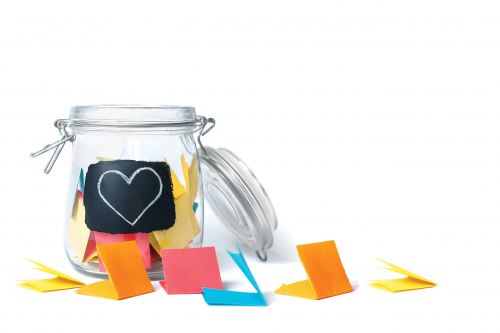Taking time to be grateful
31 March 2020
Exercising gratitude may not always be easy, but it’s worth the effort.

Do you work out to improve your health? Do you make sure you include weight training, muscle strengthening, stretching, or perhaps regular aerobic classes? But what about your heart? Is exercising gratitude part of your fitness routine?
That’s the message of World Gratitude Day on 21 September. Celebrated since 1965, it’s an upbeat reminder for us to be thankful often and actively for the good things in our lives.
The gratitude groundswell is growing, with plenty of research and countless articles written about the emotional, social, health and physical benefits of being grateful. We’re encouraged to express our #gratitude by posting on social media platforms, keeping journals, meditating, writing letters — but what if you don’t feel grateful?
Salvation Army officer (minister) and psychologist Dr Catherine Philpot says it is important to be mindful of people’s circumstances when encouraging them to find the positives in their lives.
“To feel like you are being told to be grateful can be very unhelpful for someone struggling with life,” she observes.
“It can add a layer of shame and judge-ment to an already difficult experience — ‘I’m struggling enough as it is — now I need to try and be grateful?’ It can separate us from those we are trying to care for, leading them to think, ‘You don’t understand, how you could possibly tell me to be grateful for this?’”
People may view gratitude as an important value in life, she says, but still struggle with knowing how to approach it when facing difficult times.
“Gratitude comes with the realisation that something good has happened to you, along with the recognition that someone was responsible for it, whether they are another individual, God, or an impersonal force,” she says, noting however that we often give greater attention to negative feedback rather than positive.
“Who hasn’t spent more time worrying about the one person who said something critical to us even though many others may have been positive?” she asks.
“Following through on an intention to be grateful helps address some of this natural tendency that we humans have developed to focus on the negative. It helps us to develop a more balanced view of the world. But old habits die hard, so in order to enact an intention to be grateful, we often need to set concrete behavioural targets to make sure our intentions translate into action.”
She suggests a helpful way to do this is setting aside time to practise gratitude.
“Perhaps make a plan to write things down that you are grateful for before you go to sleep,” Catherine says.
“You might like to make it a family activity and go around the table at dinner time asking people to share something they are grateful for. Those who like to interact with the world through visual forms might like to have a jar to keep mementos of things they are grateful for, or start a visual diary.”
Catherine notes there are many directives in the Bible to be grateful, including in the Psalms. Her own journey into gratitude began while reflecting on Philippians chapter 4, verse 6: “Don’t worry about anything, but pray and ask God for everything you need, always giving thanks for what you have.”
“I found I was often coming with my prayers and requests to God, but leaving just as anxious as I was when I began,” she shares.
“Being deliberate about being thankful as I also prayed about the things that cause me concern helped me remember all the things God had already brought me through, all the good things that I already have in my life. It opened my awareness to a broader vision and really did bring the ‘peace that passes understanding’” (Philippians chapter 4, verse 7).
Aux.-Lieutenant Dr Catherine Philpot serves at The Salvation Army Centenary Corps in Queensland.

Comments
No comments yet - be the first.